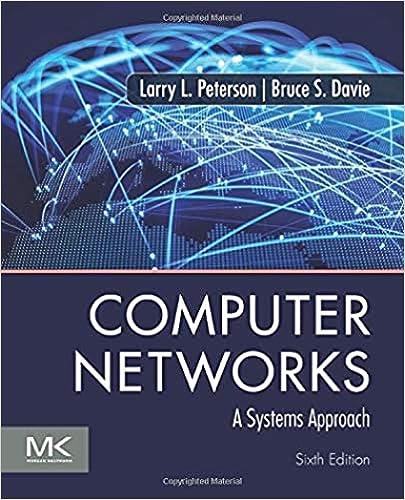Suppose a routers drop policy is to drop the highest-cost packet whenever queues are full, where it
Question:
Suppose a router’s drop policy is to drop the highest-cost packet whenever queues are full, where it defines the “cost” of a packet to be the product of its size by the time remaining that it will spend in the queue.Note that in calculating cost, it is equivalent to use the sum of the sizes of the earlier packets in lieu of remaining time.
(a) What advantages and disadvantages might such a policy offer compared to tail drop?
(b) Give an example of a sequence of queued packets for which dropping the highest-cost packet differs from dropping the largest packet.
(c) Give an example where two packets exchange their relative cost ranks as time progresses.
Fantastic news! We've Found the answer you've been seeking!
Step by Step Answer:
Related Book For 

Computer Networks A Systems Approach
ISBN: 9780128182000
6th Edition
Authors: Larry L. Peterson, Bruce S. Davie
Question Posted:





